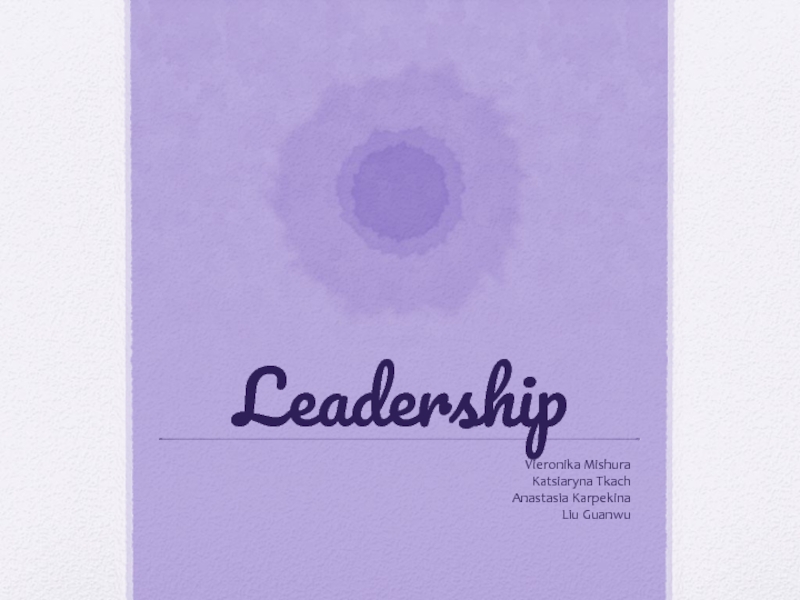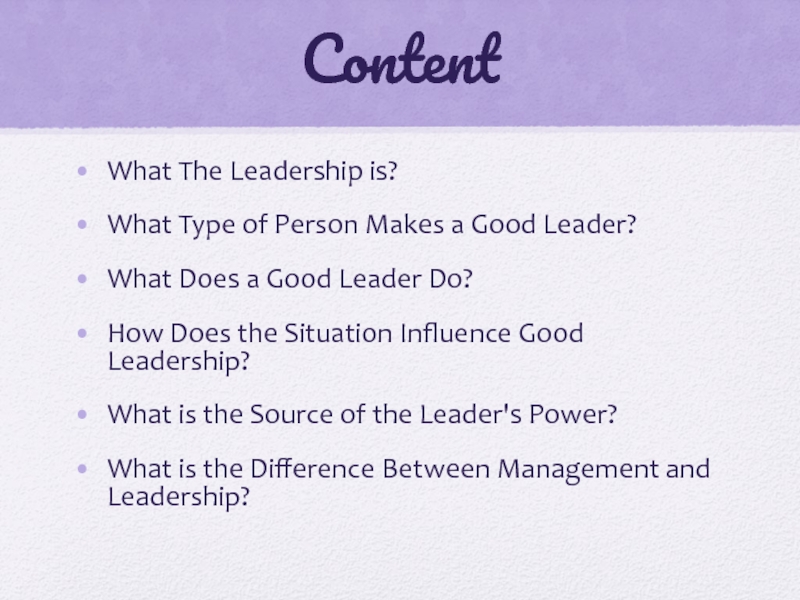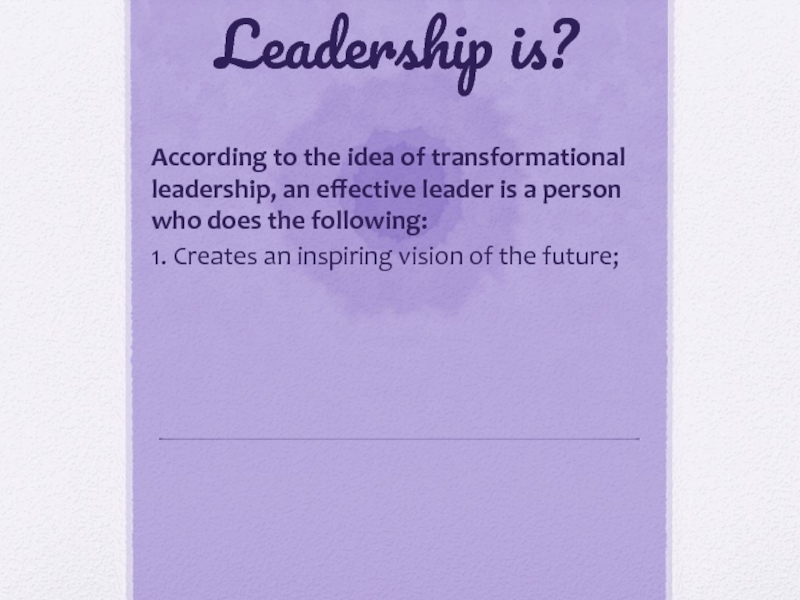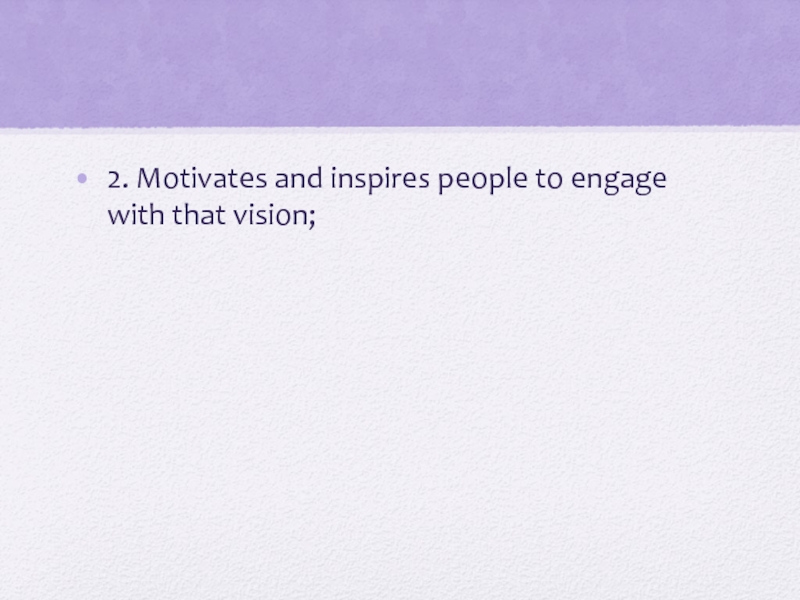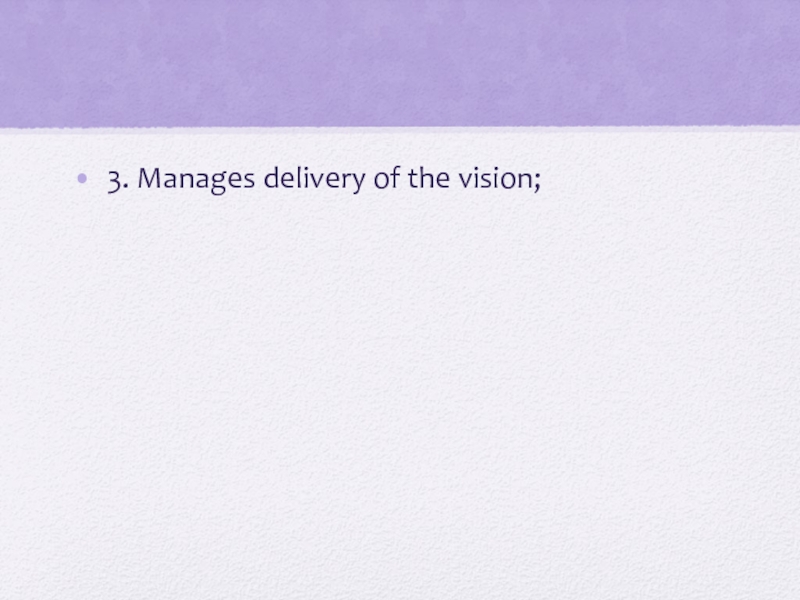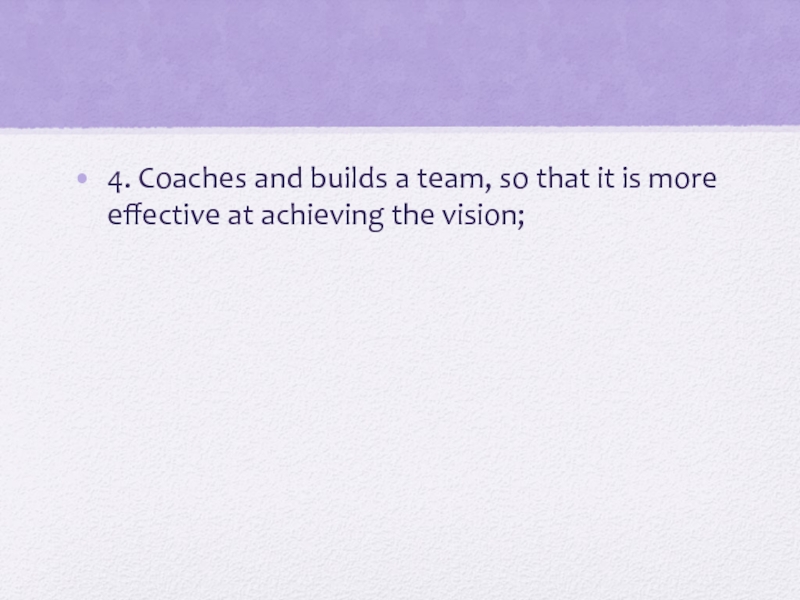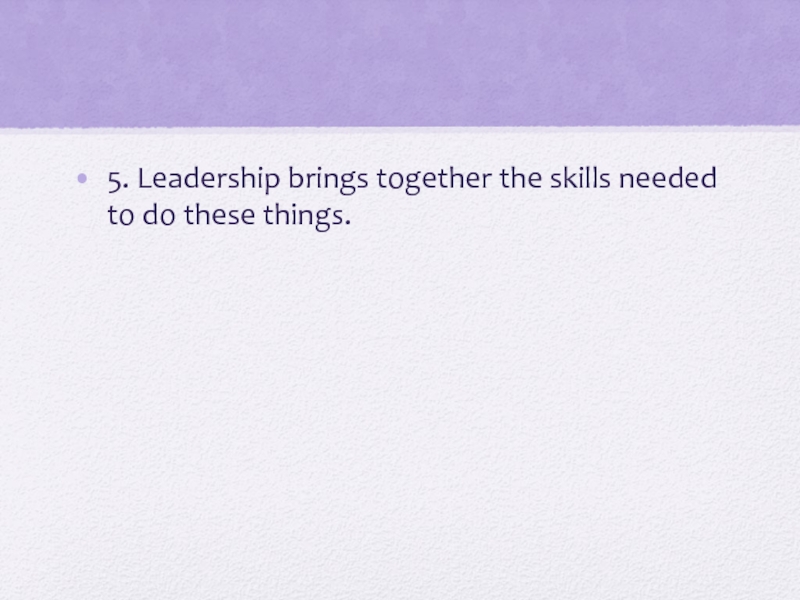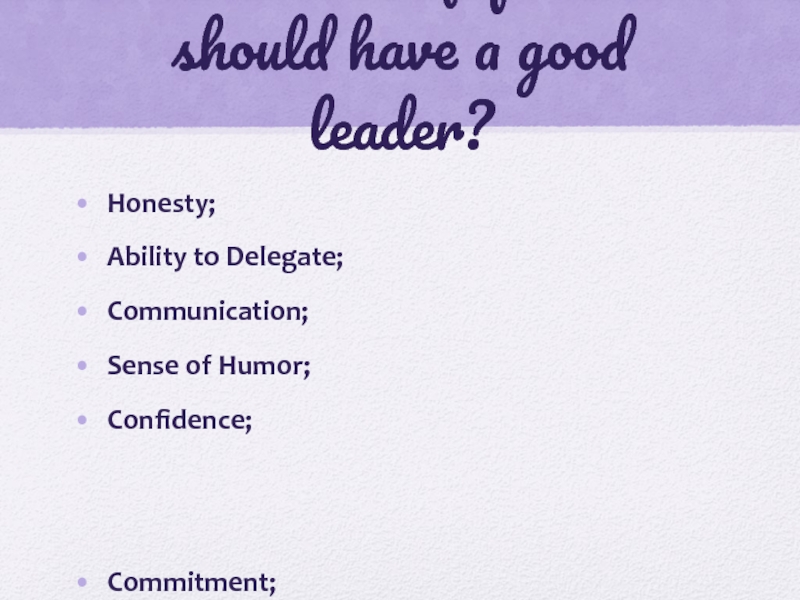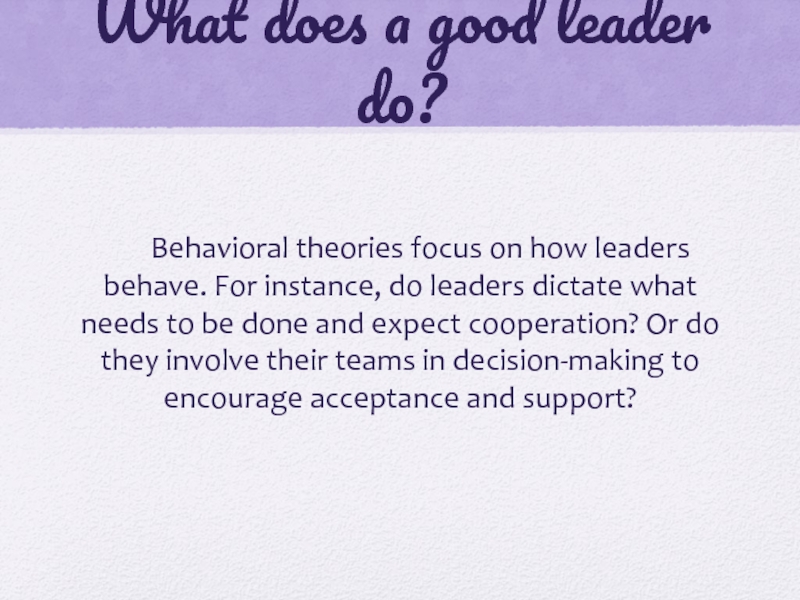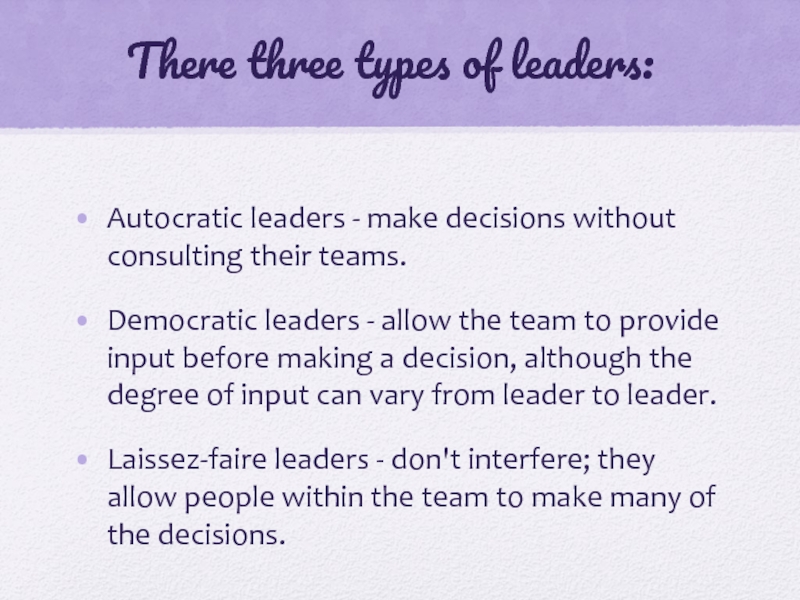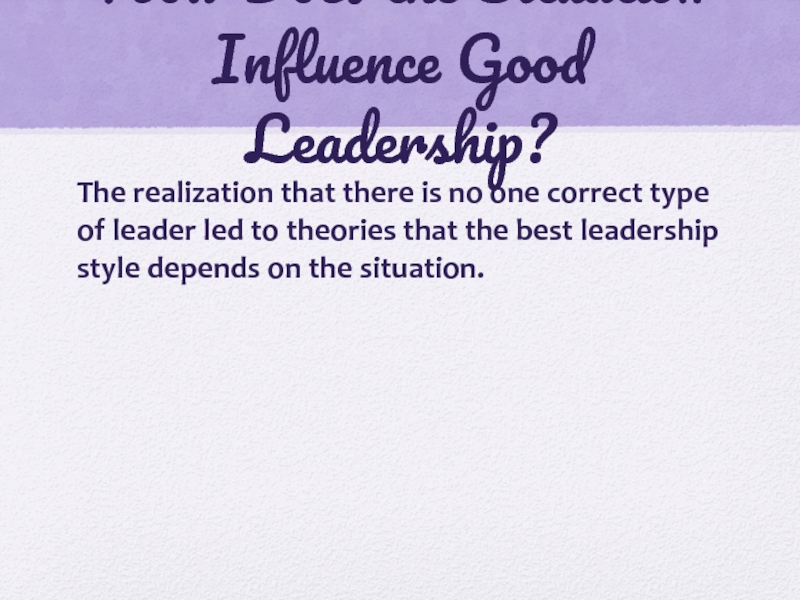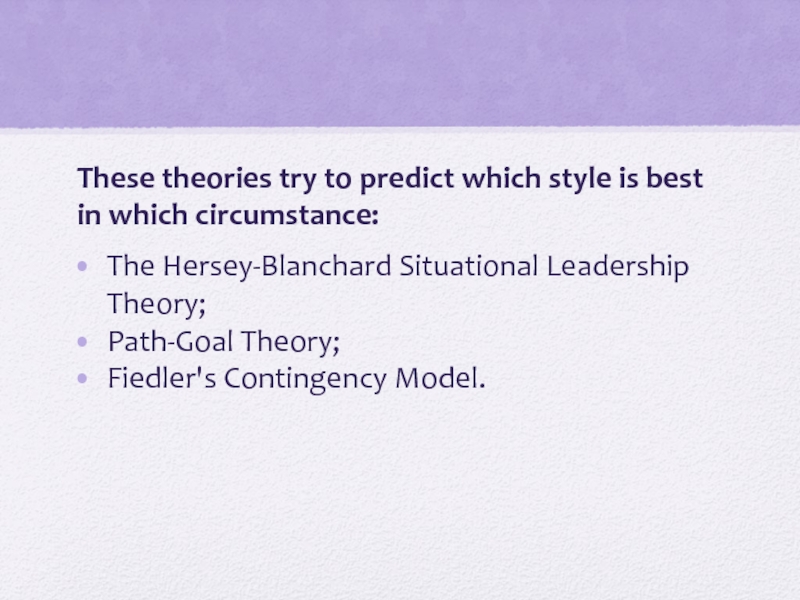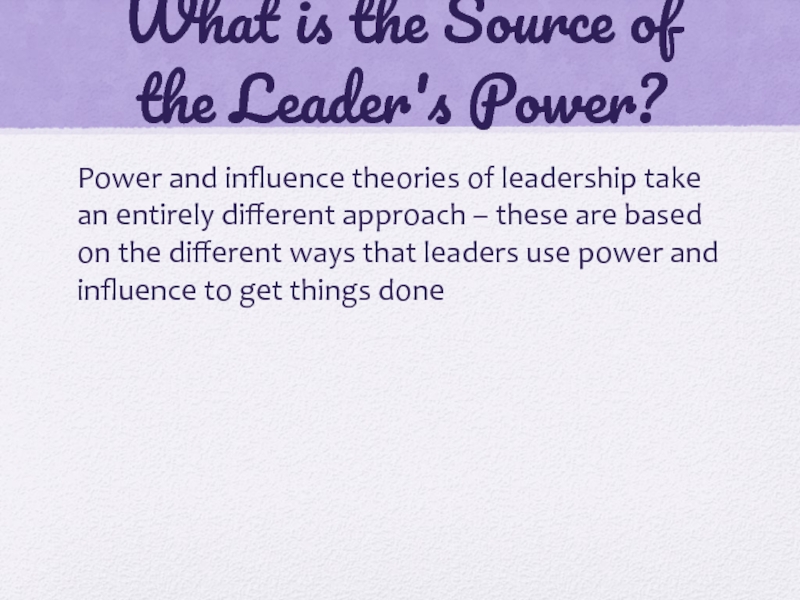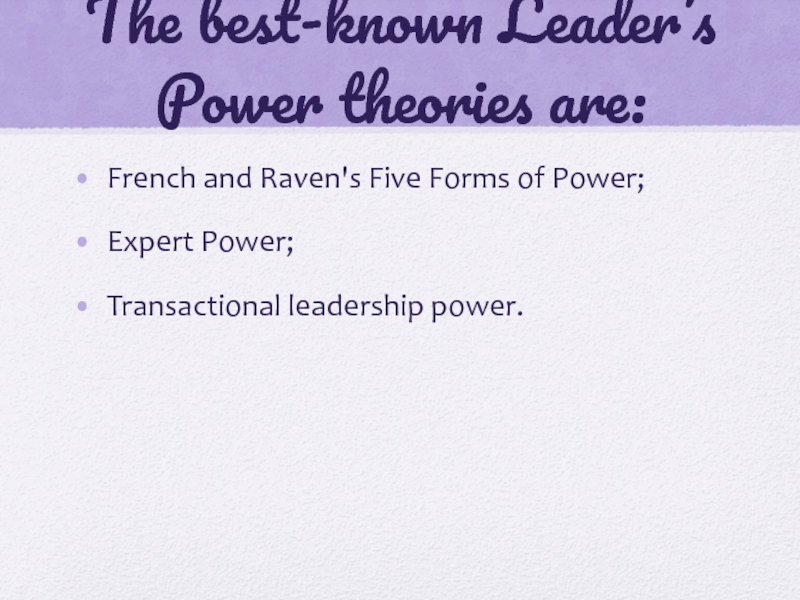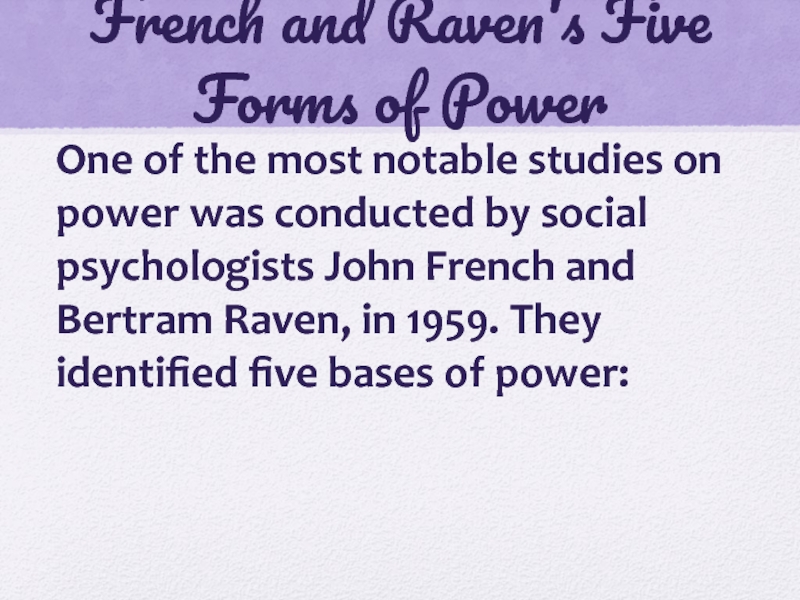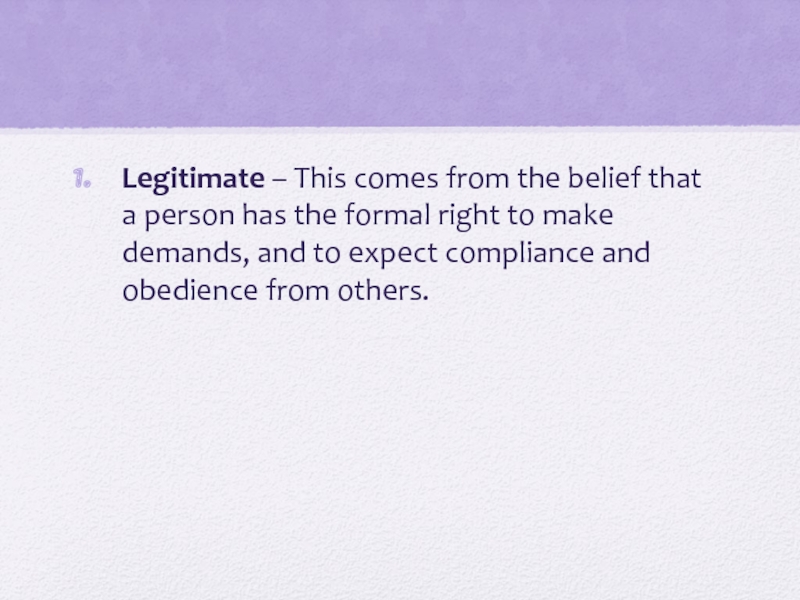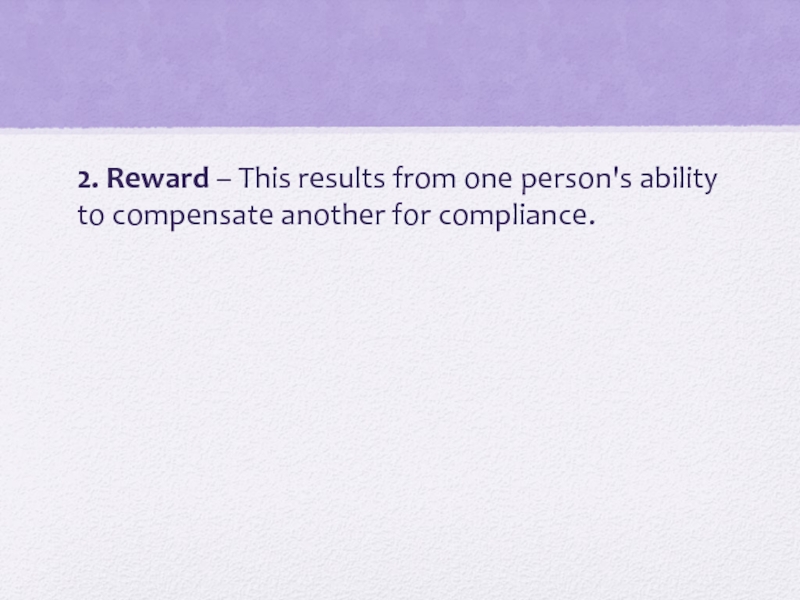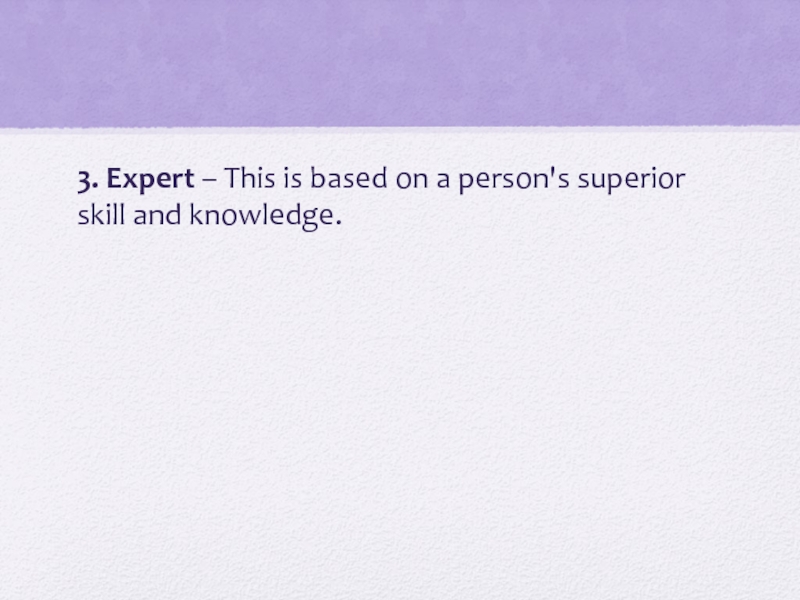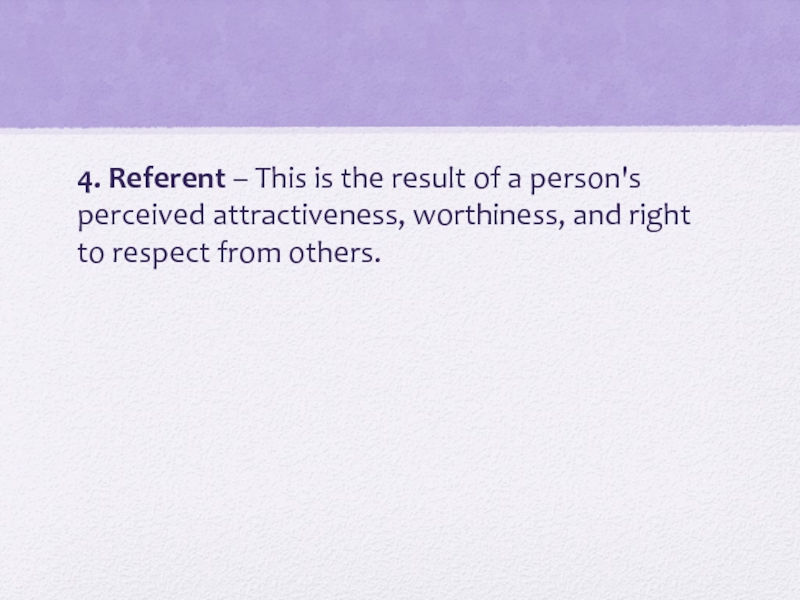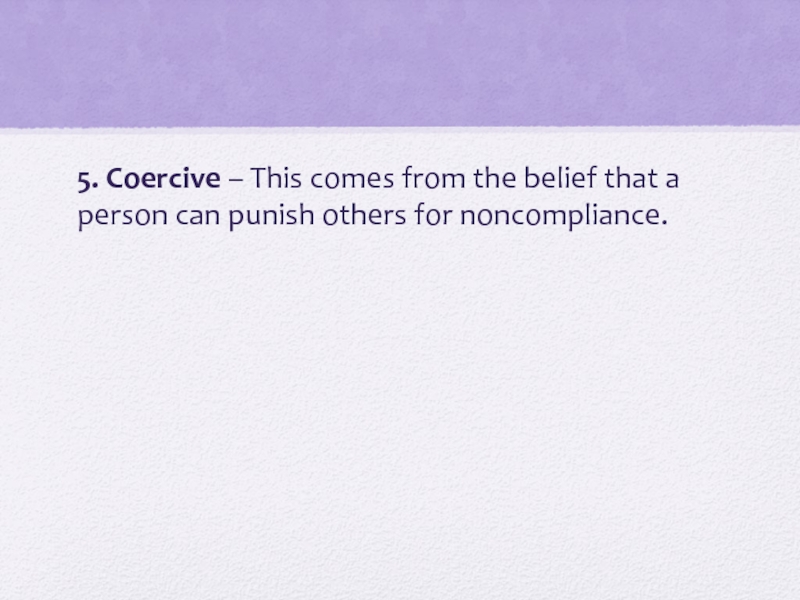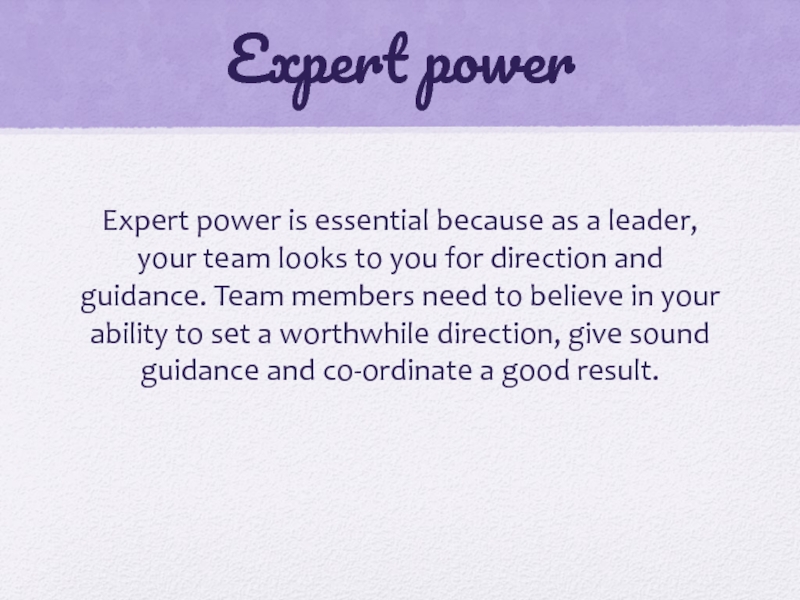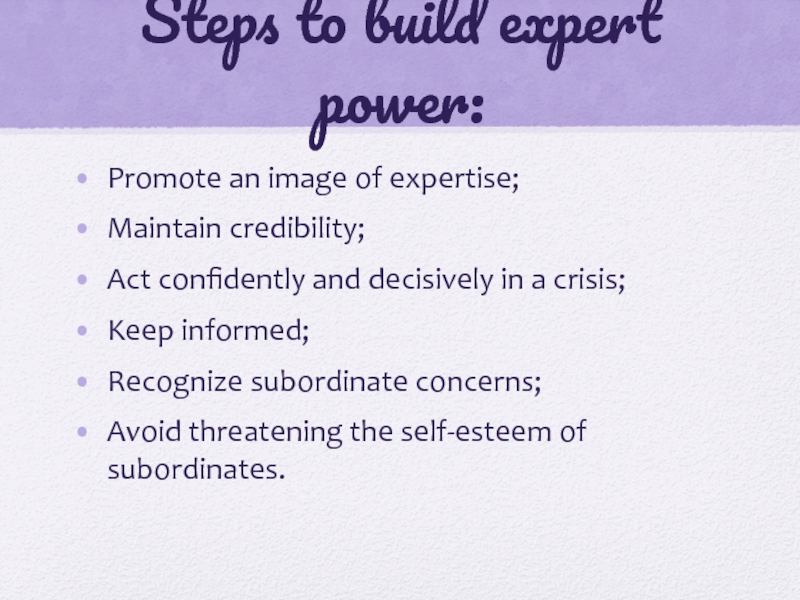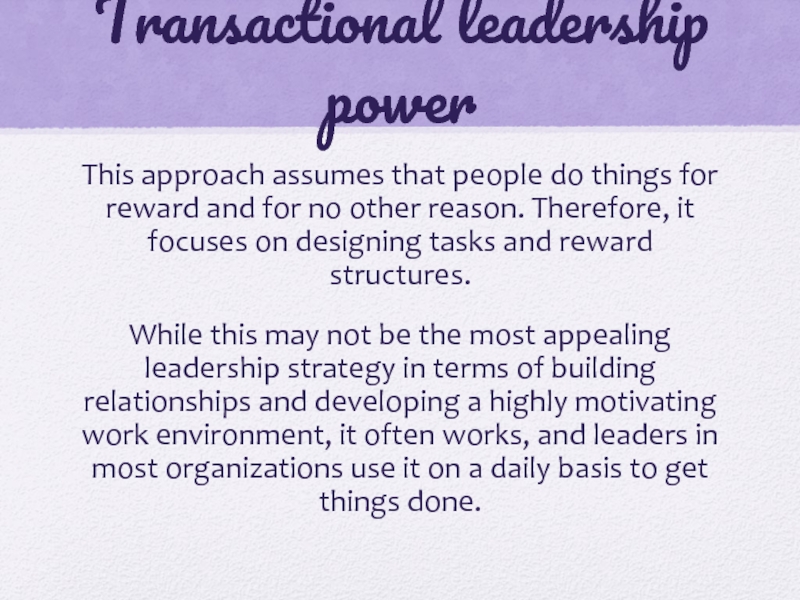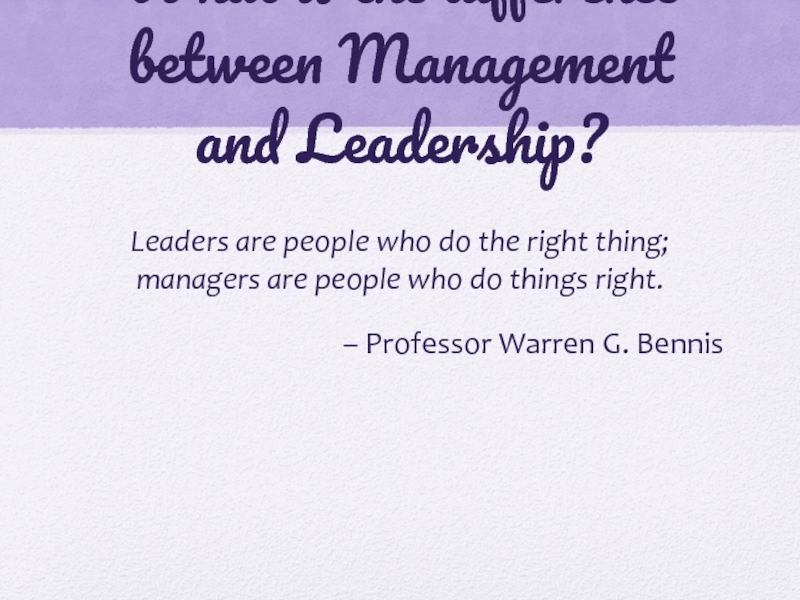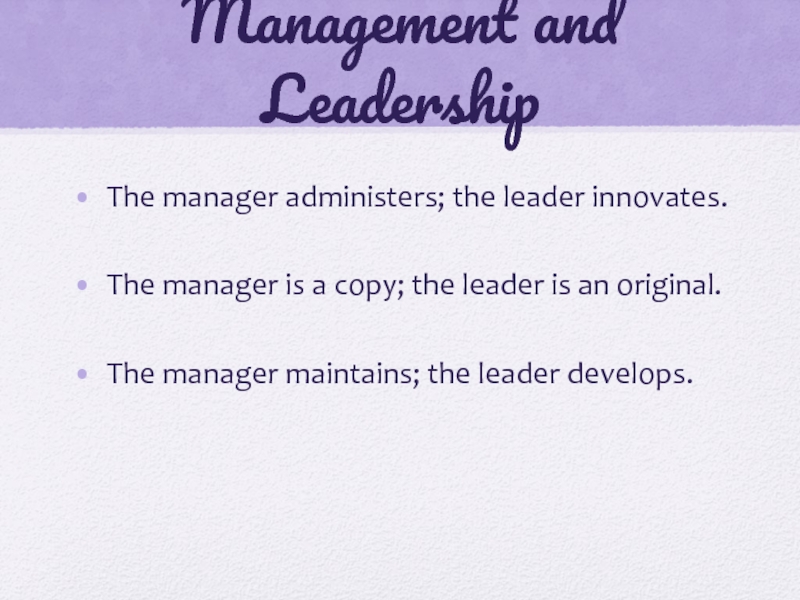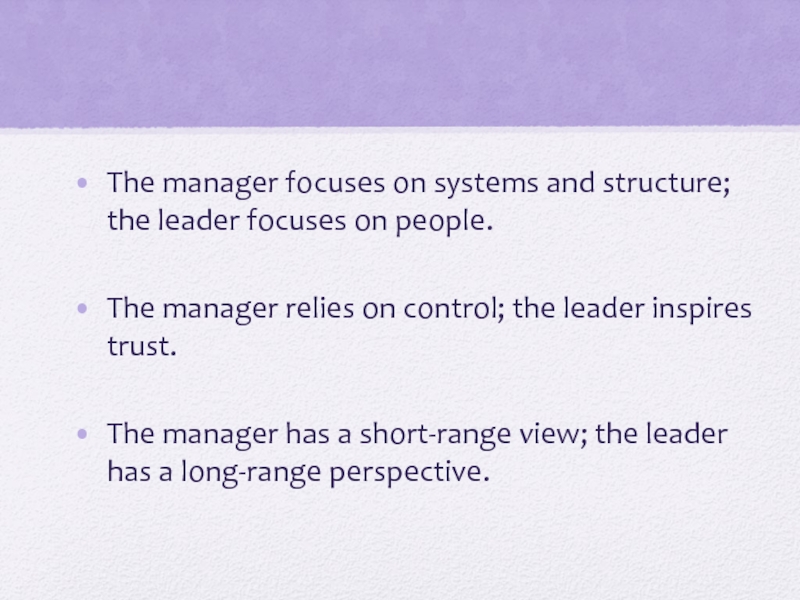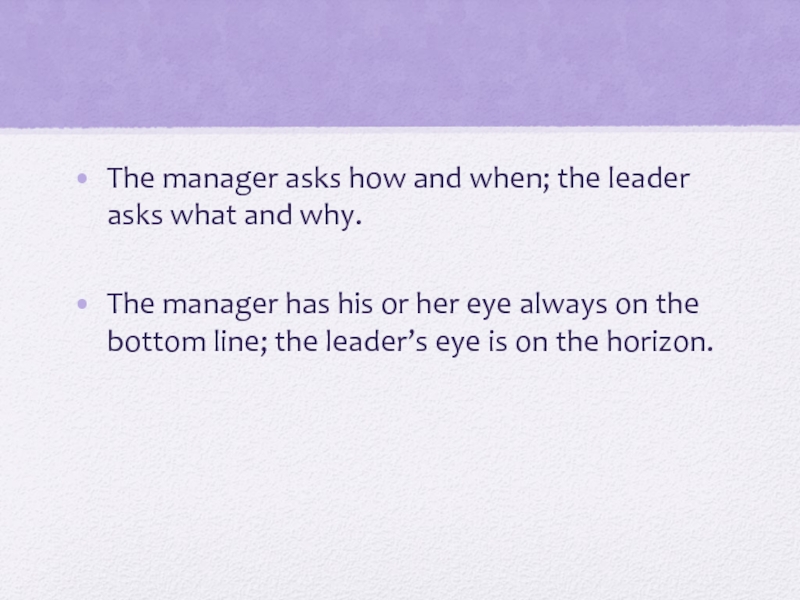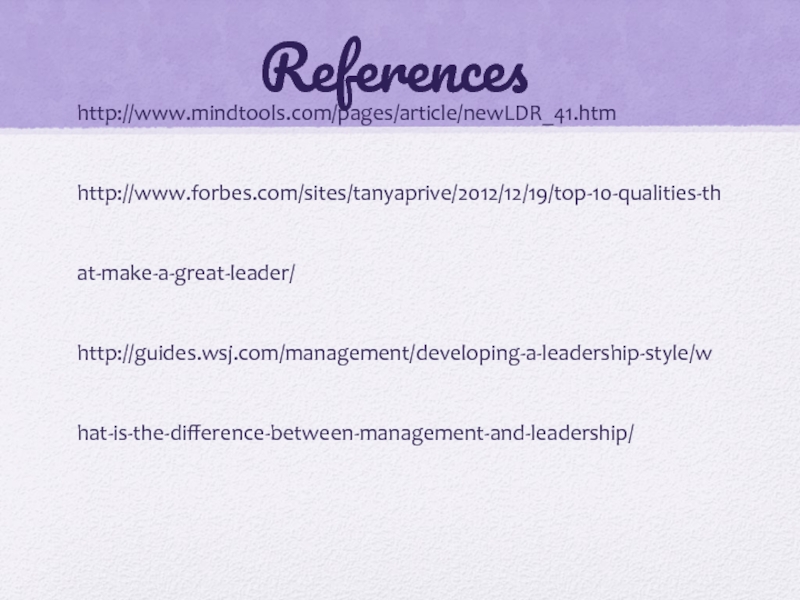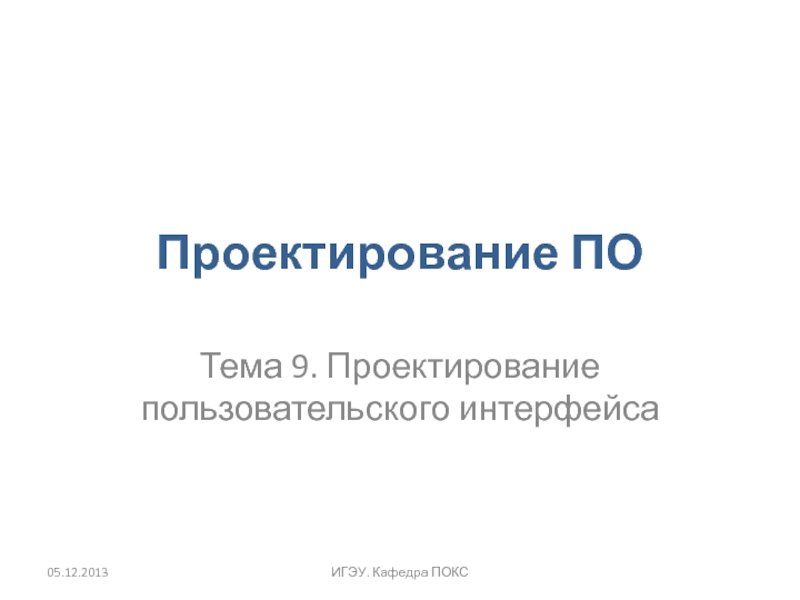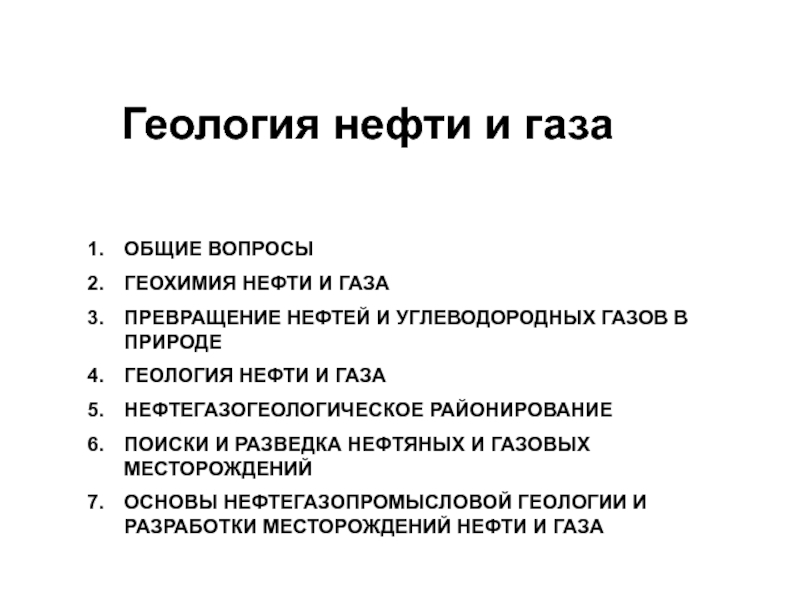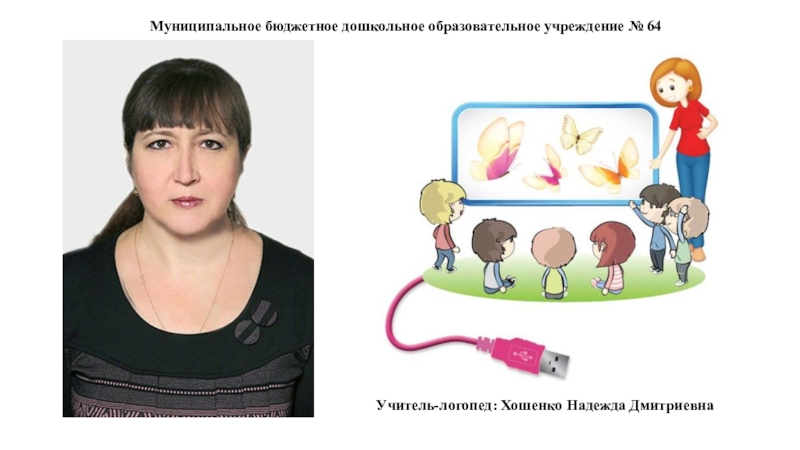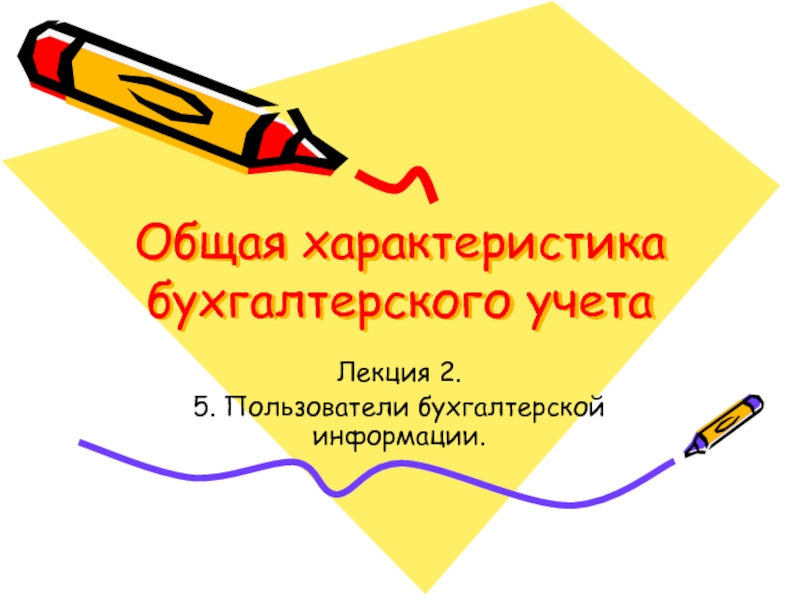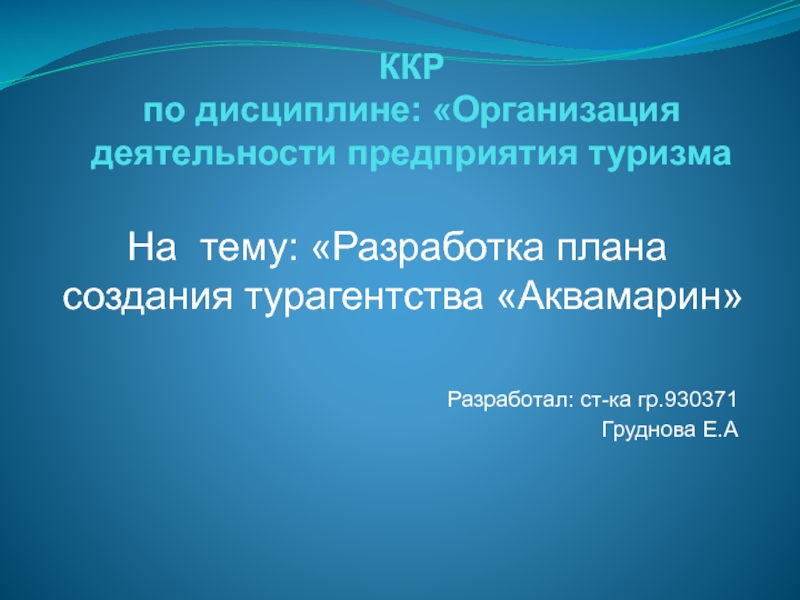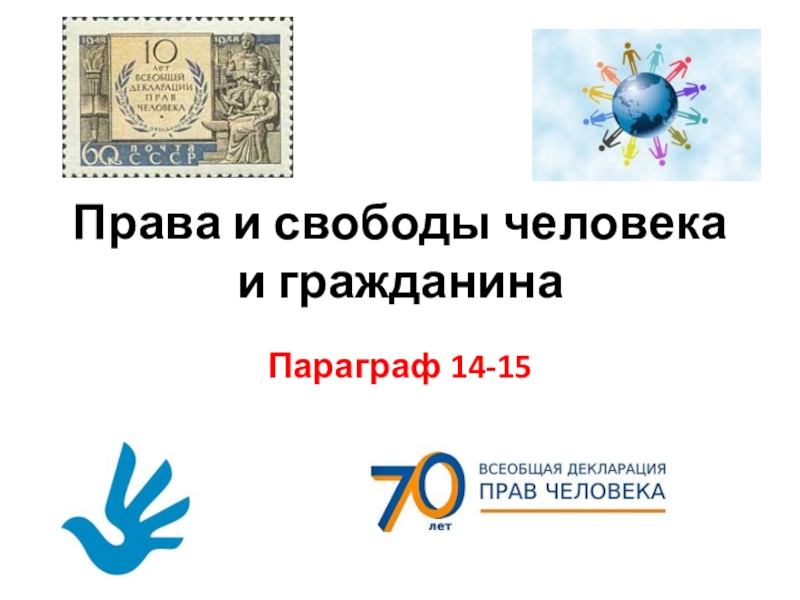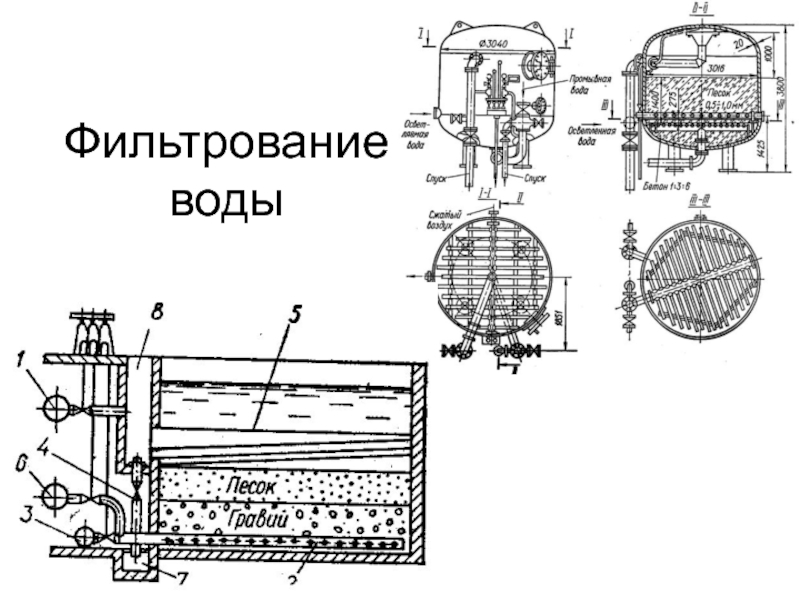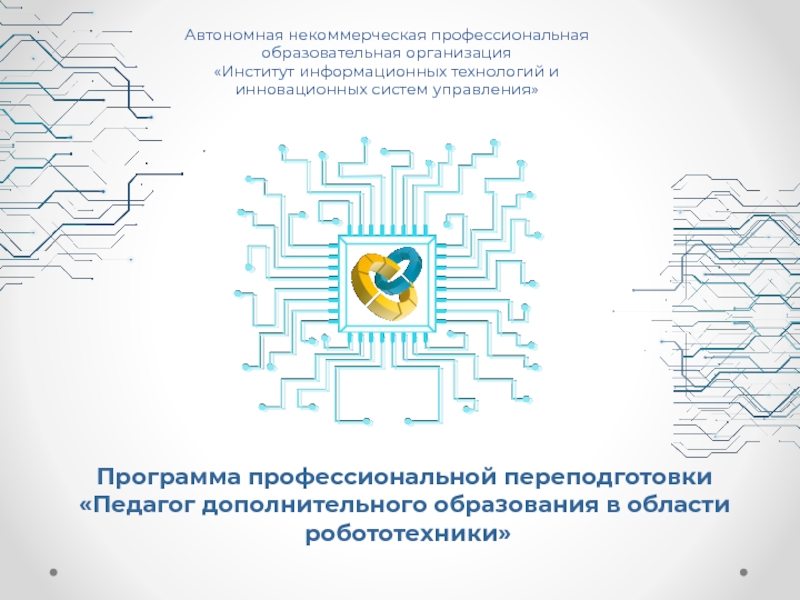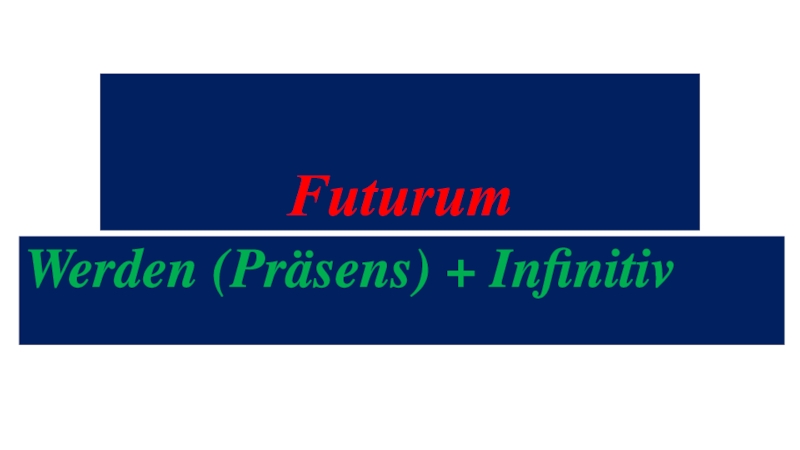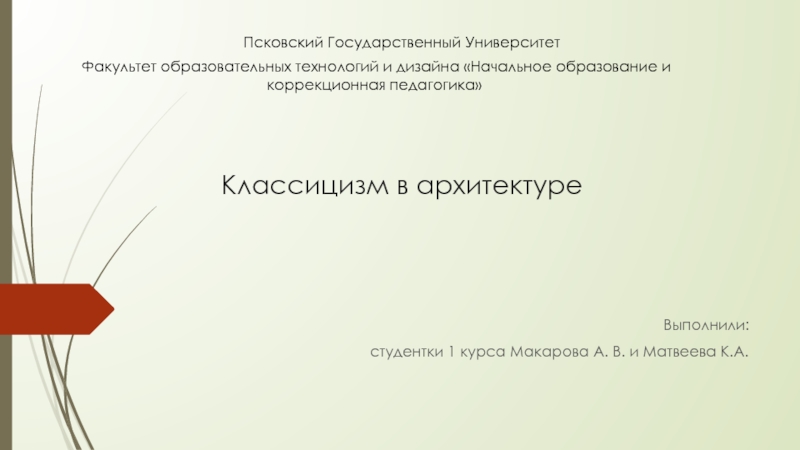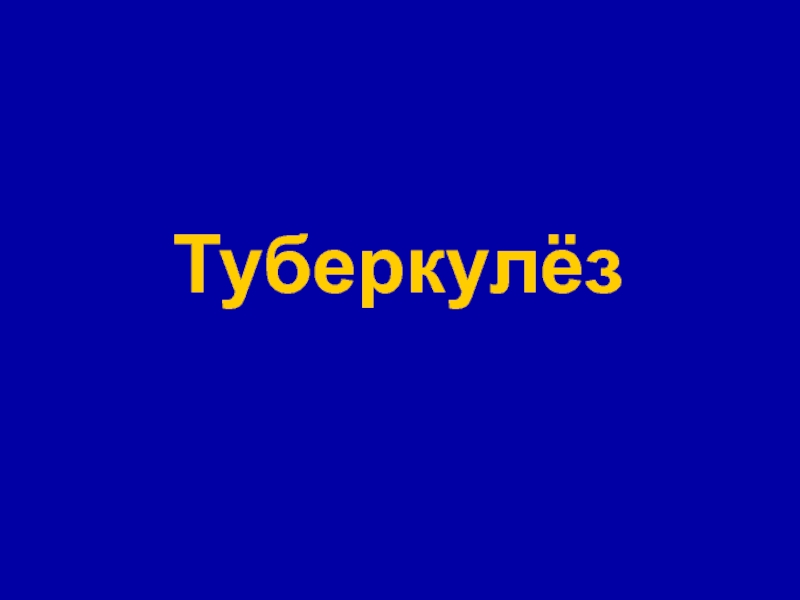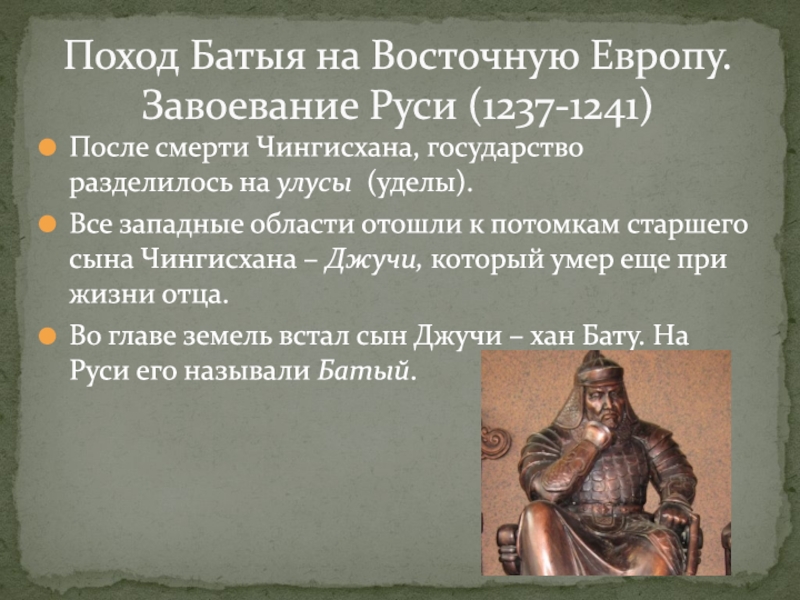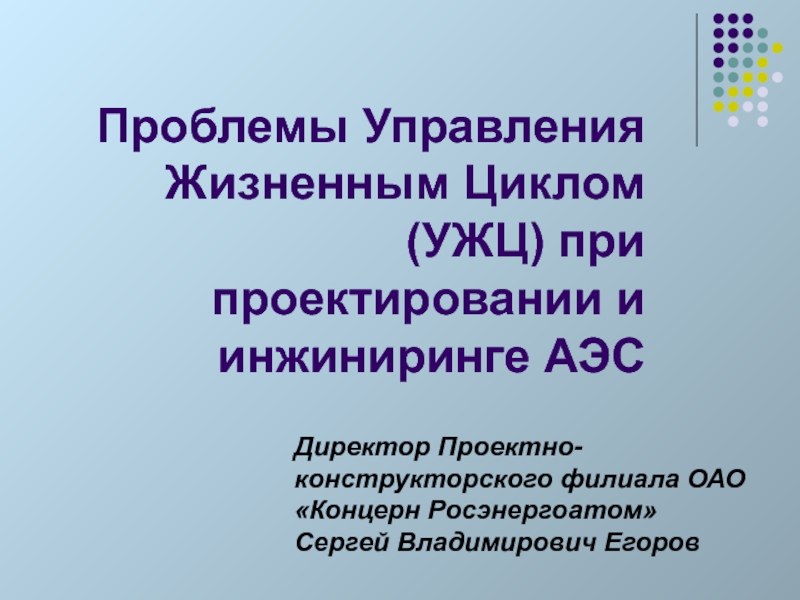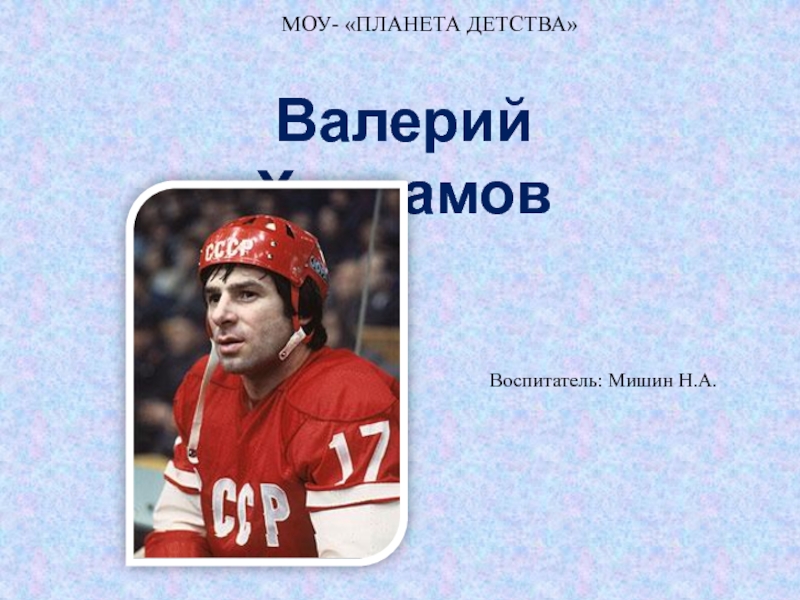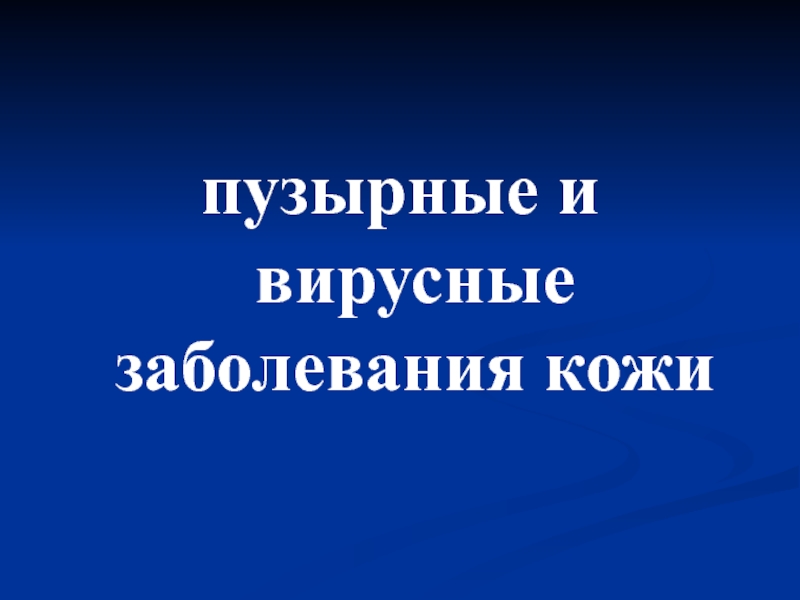Слайд 1Leadership
Vieronika Mishura
Katsiaryna Tkach
Anastasia Karpekina
Liu Guanwu
Слайд 2Content
What The Leadership is?
What Type of Person Makes a Good
Leader?
What Does a Good Leader Do?
How Does the Situation Influence
Good Leadership?
What is the Source of the Leader's Power?
What is the Difference Between Management and Leadership?
Слайд 3
What The Leadership is?
According to the idea of transformational leadership,
an effective leader is a person who does the following:
1.
Creates an inspiring vision of the future;
Слайд 42. Motivates and inspires people to engage with that vision;
Слайд 53. Manages delivery of the vision;
Слайд 64. Coaches and builds a team, so that it is
more effective at achieving the vision;
Слайд 75. Leadership brings together the skills needed to do these
things.
Слайд 8
What kind of qualities should have a good leader?
Honesty;
Ability to
Delegate;
Communication;
Sense of Humor;
Confidence;
Commitment;
Positive attitude;
Creativity;
Intuition;
Ability to inspire.
Слайд 9What does a good leader do?
Behavioral theories focus on how
leaders behave. For instance, do leaders dictate what needs to
be done and expect cooperation? Or do they involve their teams in decision-making to encourage acceptance and support?
Слайд 10
There three types of leaders:
Autocratic leaders - make decisions without
consulting their teams.
Democratic leaders - allow the team to provide
input before making a decision, although the degree of input can vary from leader to leader.
Laissez-faire leaders - don't interfere; they allow people within the team to make many of the decisions.
Слайд 11
How Does the Situation Influence Good Leadership?
The realization that there
is no one correct type of leader led to theories
that the best leadership style depends on the situation.
Слайд 12These theories try to predict which style is best in
which circumstance:
The Hersey-Blanchard Situational Leadership Theory;
Path-Goal Theory;
Fiedler's Contingency Model.
Слайд 13
What is the Source of the Leader's Power?
Power and influence
theories of leadership take an entirely different approach – these
are based on the different ways that leaders use power and influence to get things done
Слайд 14The best-known Leader’s Power theories are:
French and Raven's Five Forms
of Power;
Expert Power;
Transactional leadership power.
Слайд 15
French and Raven's Five Forms of Power
One of the most
notable studies on power was conducted by social psychologists John
French and Bertram Raven, in 1959. They identified five bases of power:
Слайд 16Legitimate – This comes from the belief that a person
has the formal right to make demands, and to expect
compliance and obedience from others.
Слайд 172. Reward – This results from one person's ability to
compensate another for compliance.
Слайд 183. Expert – This is based on a person's superior
skill and knowledge.
Слайд 194. Referent – This is the result of a person's
perceived attractiveness, worthiness, and right to respect from others.
Слайд 205. Coercive – This comes from the belief that a
person can punish others for noncompliance.
Слайд 21Expert power
Expert power is essential because as a leader, your
team looks to you for direction and guidance. Team members
need to believe in your ability to set a worthwhile direction, give sound guidance and co-ordinate a good result.
Слайд 22Steps to build expert power:
Promote an image of expertise;
Maintain
credibility;
Act confidently and decisively in a crisis;
Keep informed;
Recognize subordinate concerns;
Avoid
threatening the self-esteem of subordinates.
Слайд 23Transactional leadership power
This approach assumes that people do things for
reward and for no other reason. Therefore, it focuses on
designing tasks and reward structures.
While this may not be the most appealing leadership strategy in terms of building relationships and developing a highly motivating work environment, it often works, and leaders in most organizations use it on a daily basis to get things done.
Слайд 24What is the difference between Management and Leadership?
Leaders are people
who do the right thing; managers are people who do
things right.
– Professor Warren G. Bennis
Слайд 25Management and Leadership
The manager administers; the leader innovates.
The manager is
a copy; the leader is an original.
The manager maintains; the
leader develops.
Слайд 26The manager focuses on systems and structure; the leader focuses
on people.
The manager relies on control; the leader inspires trust.
The
manager has a short-range view; the leader has a long-range perspective.
Слайд 27The manager asks how and when; the leader asks what
and why.
The manager has his or her eye always on
the bottom line; the leader’s eye is on the horizon.
Слайд 28Thank you for your attention
Time for questions!
Слайд 29http://www.mindtools.com/pages/article/newLDR_41.htm
http://www.forbes.com/sites/tanyaprive/2012/12/19/top-10-qualities-that-make-a-great-leader/
http://guides.wsj.com/management/developing-a-leadership-style/what-is-the-difference-between-management-and-leadership/
References
